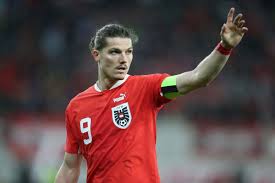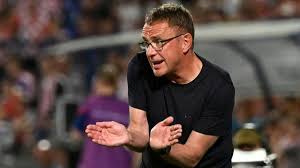Austria enjoyed a good qualifying, finishing as runners-up behind Belgium in Group F. They pushed the group winners all the way at home and secured a valuable point away in Brussels. Marcel Sabitzer was Austria’s top scorer with four goals.
Tournament Record
Austria have a modest record at the European championship. They had never qualified until they co-hosted the tournament with Switzerland in 2008. That tournament on home soil didn’t go according to plan as they crashed out in the first round, the same fate they would suffer at Euro 2016.
At the last finals, Austria finally made it out of the group and took eventual winners Italy to extra time in the round of 16. It was a performance few had expected.
The Manager
Ralf Rangnick needs little introduction. The 65-year-old is considered the mastermind behind ‘gegenpressing’, the modern-day concept that has influenced and shaped a school of German managers. He has rejuvenated the Austrian national team.
Results improved with high-octane performances and the relationship with the public prospered. At club level, he rose to fame by taking Hoffenheim to the Bundesliga. He was linked to Bayern Munich but remained loyal to Austria. Outspoken against the far-right.
The Star Player
Marcel Sabitzer found his mojo again at Borussia Dortmund after a time in the wilderness at both Bayern Munich and Manchester United. At 30, he was a key player in the club’s surprising run to the Champions League final this season. Sabitzer combines great skill with a healthy degree of combativeness. In the absence of David Alaba, he will carry the burden of responsibility in the team.

What to Expect
Austria have not passed the second round of a major tournament since 1954 and it’s hard to see the team surpass their success of Euro 2020 when Austria exceeded expectations. The draw has not been kind to Rangnick’s team with both France and the Netherlands in the group and injuries have derailed preparations and the outlook of the side.
Star player David Alaba was ruled out of the tournament and key midfielder Xaver Schlager won’t be in Germany either. Can Rangnick and his team overcome the difficult draw and setbacks? There is reason for optimism.
This is a very good generation of players, who ply their trade mostly abroad. In a 4-2-3-1 formation, they have demonstrated high pressing, quick transitions and great intensity, some of the hallmarks of Rangnick’s style. Austria then live between hope and fear – they can get out of the group and cause a few upsets, but at the same time it might all come crashing down within 270 minutes.
Schedule
Monday, June 17, Austria – France. Dusseldorf Arena, Dusseldorf, 9 pm
Friday, June 21, Poland – Austria. Olympiastadion, Berlin, 6pm
Tuesday, June 25, Netherlands – Austria. Olympiastadion, Berlin, 6pm


